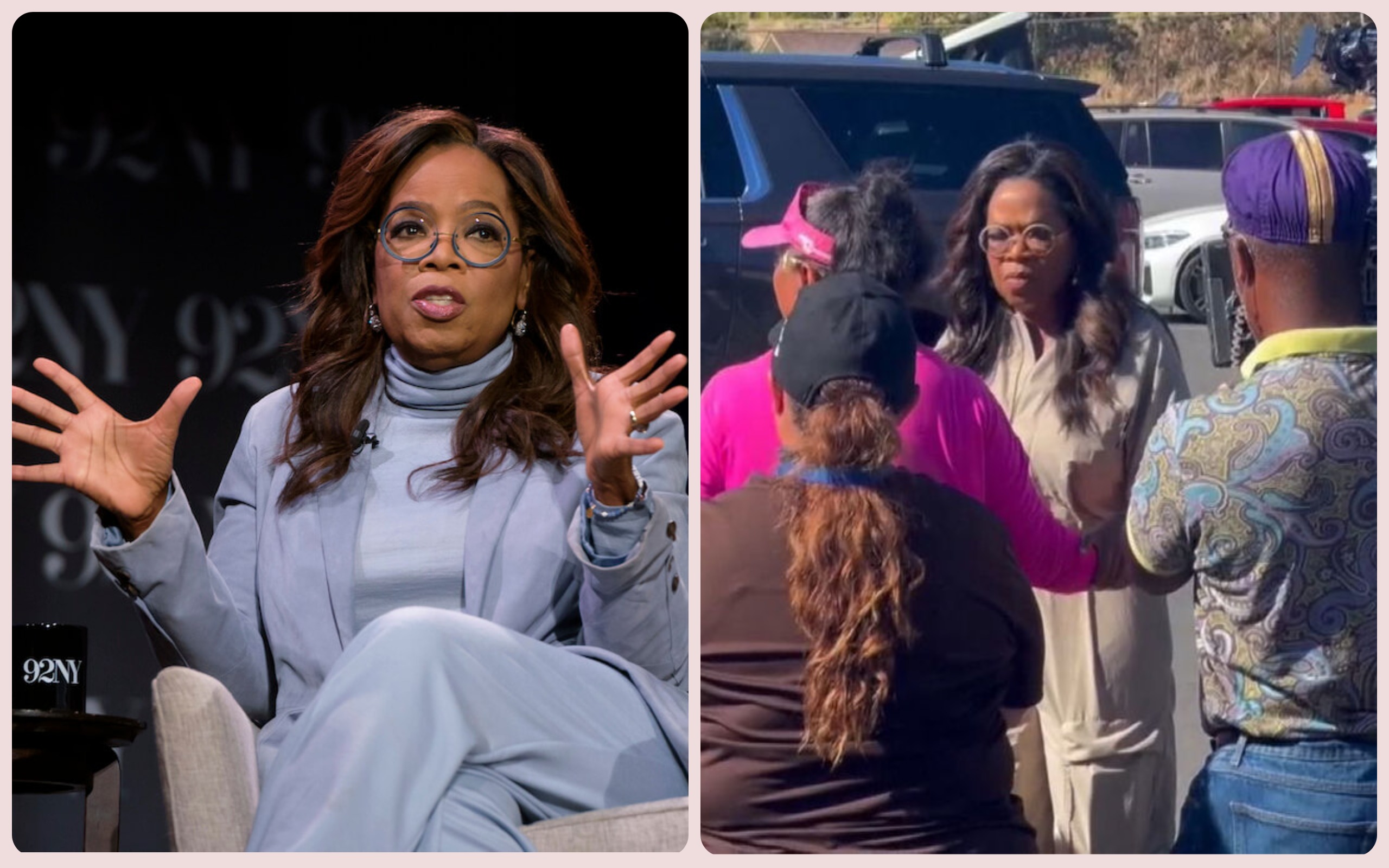When a massive 8.8‑magnitude earthquake rippled through the Pacific, Hawaii braced for a potentially devastating tsunami. Social media lit up with rumor: that Oprah Winfrey had closed off her private access road, denying locals a faster evacuation route. Here’s what really happened—and why the wildfire of misinformation spread faster than any wave.

The Tsunami That Never Arrived—but Spurred Chaos
On Wednesday, after one of the strongest earthquakes in decades struck off a Russian peninsula, Pacific islands including Hawaii received tsunami warnings. Social media users rushed to warn that Maui residents couldn’t use a private road—nicknamed “Oprah’s Road”—which allegedly belonged to Oprah and was closed to the public. People claimed residents were stranded. But by late evening, the surge had died down—and the rumors began.
The Claim: Oprah Controlled the Road and Refused Access
Multiple posts on X and TikTok argued that Winfrey had refused to open her private section of Kealakapu Road—denying locals a quicker route to higher ground. The claim: Oprah demanded permission, delayed access, and caused unnecessary panic. That narrative quickly went viral.
🚨 #NEW: Amid the massive 8.8 Pacific earthquake, Oprah Winfrey is REFUSING to open her private road in Hawaii.
Residents of Maui are struggling to get to higher ground.@Oprah: OPEN THE ROAD!
She’s tagged and will see this — tell her your thoughts.👇pic.twitter.com/B6BDDr06CI
— George 🇺🇸 (@anaveragegeorge) July 30, 2025
The Facts: Oprah Doesn’t Own the Road—and Access Was Granted Promptly
Ownership and Easement
Kealakapu Road is privately owned—but not by Oprah. It belongs to Haleakala Ranch, a family‑owned operation spanning nearly 30,000 acres on Maui’s southern coastline. Oprah holds an easement—a legal agreement granting her access and certain rights, but not full ownership. She helped pave the road under that agreement.
What Actually Happened During the Tsunami Warning
-
At around 3 p.m. local time, Haleakala Ranch notified the local fire department and the Maui Emergency Management Agency that the road would be made open.
-
By 5 p.m., the road was opened to the public.
-
Ranch personnel escorted 150–200 vehicles in coordinated caravans until approximately 7 p.m., when Maui County officials confirmed the highway was clear of traffic.
Meanwhile, representatives for Winfrey issued a statement: once warnings were issued, her land team consulted with Haleakala Ranch and assisted local authorities. There was no delay caused by refusal or refusal to negotiate—it was a prompt collaboration.
When the #earthquake triggered a #tsunami alert in Hawaii, Oprah Winfrey took action: she opened her private road in Maui so residents could escape more quickly to safe areas. pic.twitter.com/tqLryZC2RP
— JEnn (@JEnnwisdomSpeak) July 31, 2025
Why the Hoax Spread So Fast
-
“Oprah’s Road” label gave an aura of entitlement and blame.
-
Emotional urgency—the threat of natural disaster made people desperate for any explanation.
-
Pre-existing tension—longstanding grievances about wealthy landowners in Maui—worsened the viral reach.
Residents have long voiced frustration about wealthy individuals owning large tracts of land, affecting housing availability and privatizing shared spaces. In 2023, Maui suffered a devastating wildfire—widely blamed on failure to protect the historic town of Lahaina. Oprah’s fundraising ($10M, paired with Dwayne Johnson) won praise—but also fueled skepticism.
Public Response: From Outrage to Apology
As more facts emerged, public sentiment shifted. Local officials and Haleakala Ranch rebutted the claims. Apologetic TikTok creators and X users edited out earlier clips and added clarifying captions. By midnight Wednesday, official press releases confirmed the road had been accessible—not restricted. The hashtag #OprahsRoadScandal quietly died.
Oprah’s Role: Help, Not Obstruction
Neither Oprah nor her representatives made decisions during the emergency. She does not own the road; the ranch does. Her name surfaced only due to the easement and public misperception. Her involvement in aiding Maui’s wildfire recovery—via the People’s Fund, which raised nearly $60 million—contrasts sharply with the false narrative.
🚨 BREAKING: Following INTENSE public pressure, Oprah’s private road has been OPENED to those escaping the tsunami
WELL DONE, EVERYONE! 👏
It should’ve been opened HOURS ago, but if you’re in Wailea on Maui and need to get to higher ground, USE OPRAH’S ROAD NOW!
Haleakala… pic.twitter.com/u8sBnFdDHE
— Nick Sortor (@nicksortor) July 30, 2025
Why This Matters: Misinformation in Disaster Contexts
This isn’t just a Hollywood rumor—it’s a case study in how misinformation spreads under crisis conditions. People who depend on accurate answers were misinformed, possibly delaying their own evacuation decisions. It shows how even plausible-sounding claims can be wildly off base—and why clarifications must be made quickly.
Final Take: Oprah Didn’t Block Maui—and No, The Road Wasn’t Closed
Social media rumors claimed Oprah refused access to a private road amid tsunami warnings. Those claims are false. The road belongs to Haleakala Ranch, and public access began as soon as the alert went out. Local farms, the emergency agency, and ranch officials collaborated; Oprah’s team was consulted—not consulted.
As natural disasters strike, entertainment figures become easy scapegoats. In this case, the headline made for shock, but the facts reveal Redwood‑filed planning and shared responsibility—not gatekeeping. In the age of virality, trust but verify may be the rule of evacuation.
📚 Source List
-
Associated Press coverage quoting Scott Meidell, Haleakala Ranch president
-
Statements from Maui County Emergency Management Agency and fire department
-
Public release from Oprah Winfrey’s representative
-
Social media timeline tracking false claims and clarifications
-
Local media reporting on Maui’s housing crisis and wildfire recovery efforts